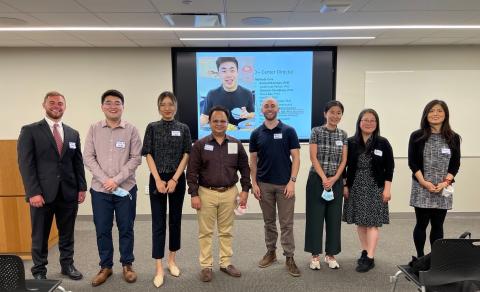Our lab focuses on developing technology tailored to a population, statistical and machine learning methods to pre-process and analyze mHealth data, and adapting models for digital interventions. We have expertise in digital phenotyping and digital interventions with mHealth data, predictors of health outcomes with big data, identifying sub-groups of treatment responders using machine learning, clinical trials in mental and behavioral health, and multivariate methodology. We have established collaborations with the Institute of Geriatric Psychiatry, the ALACRITY Research Center, the Department of Population Health Services and the Cornell Center for Health Equity.
New Research
Read our new study, "Improving Adherence to Psychotherapy and Clinical Outcome in Patients with Late-Life Depression through Gamified mHealth Technology", accepted by The American Journal of Geriatric Psychiatry. Gamification was associated with therapy adherence in mHealth-augmented psychotherapies, and may help promote symptom reduction and address the shortage of mental health providers.
See our manuscript, recently accepted at Statistics in Medicine, "A co-segmentation algorithm to predict emotional stress from passively sensed mHealth data." Our data-driven segmentation algorithm identifies stress periods more accurately than traditional ML methods. With this algorithm, we plan to develop a just-in-time, adaptive intervention (JITAI) to prevent the experience of an emotionally stressful period in middle-aged and older adults with chronic pain and depression.
Developing mHealth Applications and Interventions
![]()
Our lab has established a technical framework for the development and deployment of digital health applications that operate across mobile and web platforms. Read more about our backend architecture and how we protect patient confidentiality. Learn about our novel apps, TREE-Connect (IRB # 2404027370), WellPATH (R33MH128516-03), and EMA-PAL (K76 AG083287-01A1).



